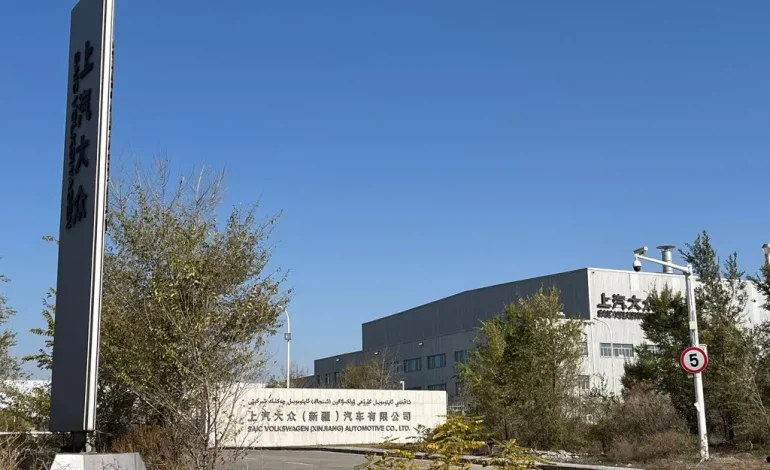Volkswagen (VW) announced on Wednesday that it is selling its operations in China’s Xinjiang region, marking the end of a 12-year presence in an area that has drawn international scrutiny over human rights concerns.
VW, along with its joint venture partner SAIC Motor, is transferring ownership of its assembly plant and test tracks in Xinjiang to the Shanghai Motor Vehicle Inspection Certification (SMVIC), a unit of the state-owned Shanghai Lingang Development Group.
Volkswagen’s plant in Urumqi, the capital of Xinjiang, has been at the center of criticism from human rights organizations. These groups have highlighted evidence of forced labor and the detention of Uyghur Muslims in the region, prompting the US and several European countries to restrict imports from Xinjiang since 2021. VW has denied using forced labor but faced ongoing pressure to exit the region.
The assembly plant, which opened in 2013 and once produced gasoline-powered Santana vehicles, had become economically unsustainable. It has not produced cars since 2019 due to the rapid shift toward electric vehicles in China, leaving it largely idle with only about 200 employees remaining to handle final vehicle preparation for local dealerships.
Volkswagen emphasized that the decision to sell was driven by economic factors, not political pressure, noting that the plant’s location, 1,800 miles from the coast, made exports impractical. The sale terms, including financial details, were not disclosed.
The announcement of VW’s exit coincides with a major expansion of its partnership with SAIC, which has been extended until 2040. Together, they plan to launch 18 new models in China by 2030, including electric and hybrid vehicles. VW has also partnered with Chinese automaker Xpeng to develop additional models tailored to the Chinese market.
The divestment from Xinjiang appears to be a mutually beneficial move for both VW and SAIC. It removes a significant reputational risk for VW and alleviates a source of tension with SAIC as both companies work to revive sales in China’s slowing automotive market.
Stakeholders, including Lower Saxony—Volkswagen’s second-largest shareholder—welcomed the sale, viewing it as a resolution to a contentious issue with minimal financial impact. Deka Investment, a top shareholder that had pressured VW to leave Xinjiang, said the move would end controversial discussions around the company’s presence in the region.
Volkswagen’s withdrawal also reflects the broader challenges facing European automakers in China, particularly amid rising tensions between Beijing and the European Union over tariffs on Chinese-made electric vehicles. Despite these challenges, VW aims to launch over 30 new electric or hybrid models in China by 2030.
Volkswagen’s stock saw a minor decline following the announcement, in line with Germany’s DAX index.
With input from the New York Times, the Financial Times, and Reuters.









